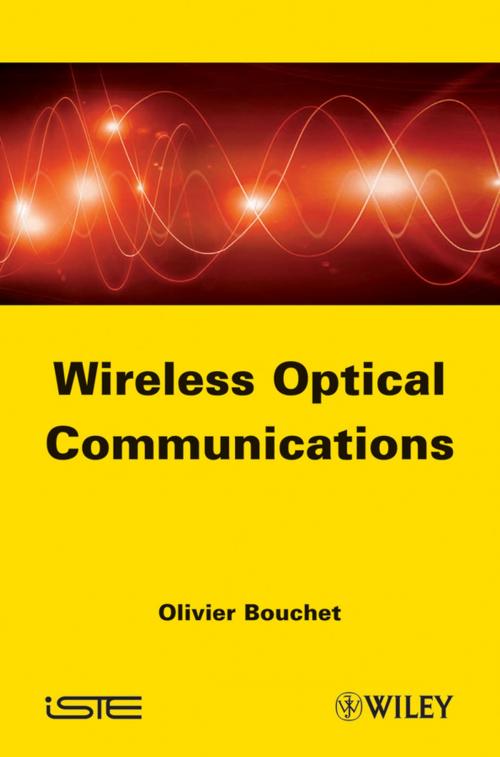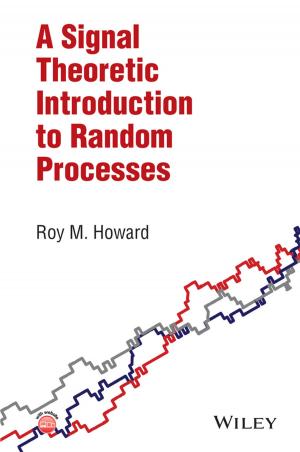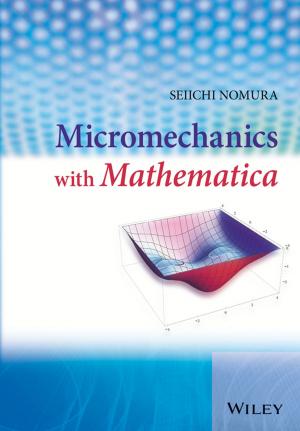| Author: | Olivier Bouchet | ISBN: | 9781118563274 |
| Publisher: | Wiley | Publication: | February 4, 2013 |
| Imprint: | Wiley-ISTE | Language: | English |
| Author: | Olivier Bouchet |
| ISBN: | 9781118563274 |
| Publisher: | Wiley |
| Publication: | February 4, 2013 |
| Imprint: | Wiley-ISTE |
| Language: | English |
Wireless optical communication refers to communication based on the unguided propagation of optical waves. The past 30 years have seen significant improvements in this technique – a wireless communication solution for the current millennium – that offers an alternative to radio systems; a technique that could gain attractiveness due to recent concerns regarding the potential effects of radiofrequency waves on human health.
The aim of this book is to look at the free space optics that are already used for the exchange of current information; its many benefits, such as incorporating channel properties, propagation models, link budgets, data processing including coding, modulation, standards and concerns around health and safety (IEC 60825 or FCC - Class 1 for example), etc. will become indispensable over the next decade in addressing computer architectures for short-, medium- and long-range telecommunications as we move from gigabytes to terabytes per second.
Wireless Optical Communications is an excellent tool for any engineer wanting to learn about wireless optical communications or involved in the implementation of real complete systems. Students will find a wide range of information and useful concepts such as those relating to propagation, optics and photometry, as well the necessary information on safety.
Contents
- Light.
- History of Optical Telecommunications.
- The Contemporary and the Everyday Life of Wireless Optical Communication.
- Propagation Model.
- Propagation in the Atmosphere.
- Indoor Optic Link Budget.
- Immunity, Safety, Energy and Legislation.
- Optics and Optronics.
- Data Processing.
- Data Transmission.
- Installation and System Engineering.
- Conclusion.
Wireless optical communication refers to communication based on the unguided propagation of optical waves. The past 30 years have seen significant improvements in this technique – a wireless communication solution for the current millennium – that offers an alternative to radio systems; a technique that could gain attractiveness due to recent concerns regarding the potential effects of radiofrequency waves on human health.
The aim of this book is to look at the free space optics that are already used for the exchange of current information; its many benefits, such as incorporating channel properties, propagation models, link budgets, data processing including coding, modulation, standards and concerns around health and safety (IEC 60825 or FCC - Class 1 for example), etc. will become indispensable over the next decade in addressing computer architectures for short-, medium- and long-range telecommunications as we move from gigabytes to terabytes per second.
Wireless Optical Communications is an excellent tool for any engineer wanting to learn about wireless optical communications or involved in the implementation of real complete systems. Students will find a wide range of information and useful concepts such as those relating to propagation, optics and photometry, as well the necessary information on safety.
Contents
- Light.
- History of Optical Telecommunications.
- The Contemporary and the Everyday Life of Wireless Optical Communication.
- Propagation Model.
- Propagation in the Atmosphere.
- Indoor Optic Link Budget.
- Immunity, Safety, Energy and Legislation.
- Optics and Optronics.
- Data Processing.
- Data Transmission.
- Installation and System Engineering.
- Conclusion.















